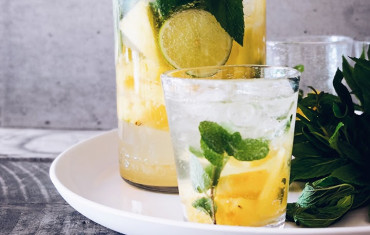By Elizabeth Herman | Posted: October 10, 2019
What do you do at the office holiday party when most of your colleagues are drinking? Have you noticed that your tipsy co-workers aren’t quite mentally present in the same way they are when they’re sober?
Drinkers are experts at putting on a show of having a good time. For some, the parties, laughter, and loss of inhibitions can make it tempting to join in. You may get swept up in the false idea that alcohol is a celebration. But the reality is that there are no real benefits to drinking alcohol. Here’s how you can reduce the urge to drink by learning healthy ways to manage stress and negative emotions.
The burdens of alcohol
65 percent of the 123 million fully-employed American adults drink alcohol, compared to 53 percent of unemployed adults. Companies suffer a lot of losses due to alcohol abuse: problems including absenteeism, health complications, workplace injuries, and other reasons for productivity reductions cost employers between $33 billion and $68 billion per year.
In addition to the financial burdens of alcoholism, society has to deal with the results of alcohol-related crimes. “Violence, I’ve seen, happens because of addictions, because people aren’t normal when they’re under the influence of alcohol, drugs, and other substances,” says Gurudev Sri Sri Ravi Shankar, the founder of the Art of Living Foundation.
A personal perspective
I’ve been alcohol-free since 2003, so when I see family members, friends and acquaintances drinking, their condition of drunkenness makes them stand out as unrelatable. They slur their words and say things that are hurtful to others and destructive to relationships.
Intoxicated people usually do one of two things: pass out or lash out. My aunt used to excuse herself from family gatherings and pass out in a bedroom for most of her visit. She and another relative that I remember would lash out verbally, insulting the host or other guests about petty annoyances like the food or the noise. Even when a host did everything they could to make a drinking person happy, it wasn’t enough.
Several times, individuals that had been drinking became abusive towards me, and I haven’t forgotten those traumatic experiences. In recent years, I’ve done my best to avoid situations, with a few exceptions, where alcohol use is present. I’m grateful, in fact, that I’ve realized the dangers of alcohol and have been able to stay away from it.
Anti-alcohol education
Gurudev outlines several aspects of his solution to the problem of alcoholism:
Mental purpose and physical activity: “A mind without direction requires purpose, and the body requires activity. Without these, laziness and desire for intoxication are more likely to take hold. Unless we involve ourselves in helping and becoming an inspiration to others, depression and lethargy can give rise to desperation for the temporary and inauthentic pleasure that alcohol and other substances bring.”
Stress relief: “When we have a lot of things to do and we’ve no energy and no time, then what happens to us? We get frustrated; we get questions that we can’t answer. Some people start to drink.”
Dealing with negative emotions: “When the unanswered questions get fermented in our minds, like alcohol gets fermented, they turn into violence—domestic violence—on children, on women (and even on men). Domestic violence, societal violence, alcoholism, and suicidal tendencies are all because we haven’t taught our children how to deal with their negative emotions.”
I hope that you don’t have to learn from experience about the pitfalls of alcohol use like I did. By getting involved in Art of Living programs like the Happiness Program and Sahaj Samadhi (natural bliss) meditation, you can learn natural techniques for authentic, joyful celebration and create so much inner bliss in your life.
You can and should eliminate the urge to drink alcohol to protect your health, relationships, and productivity. All the best to you on your journey!
Elizabeth Herman writes, offers writing support to clients, teaches, and volunteers for a better world. She has earned a Ph.D. in Rhetoric, Composition, and Literature.
































